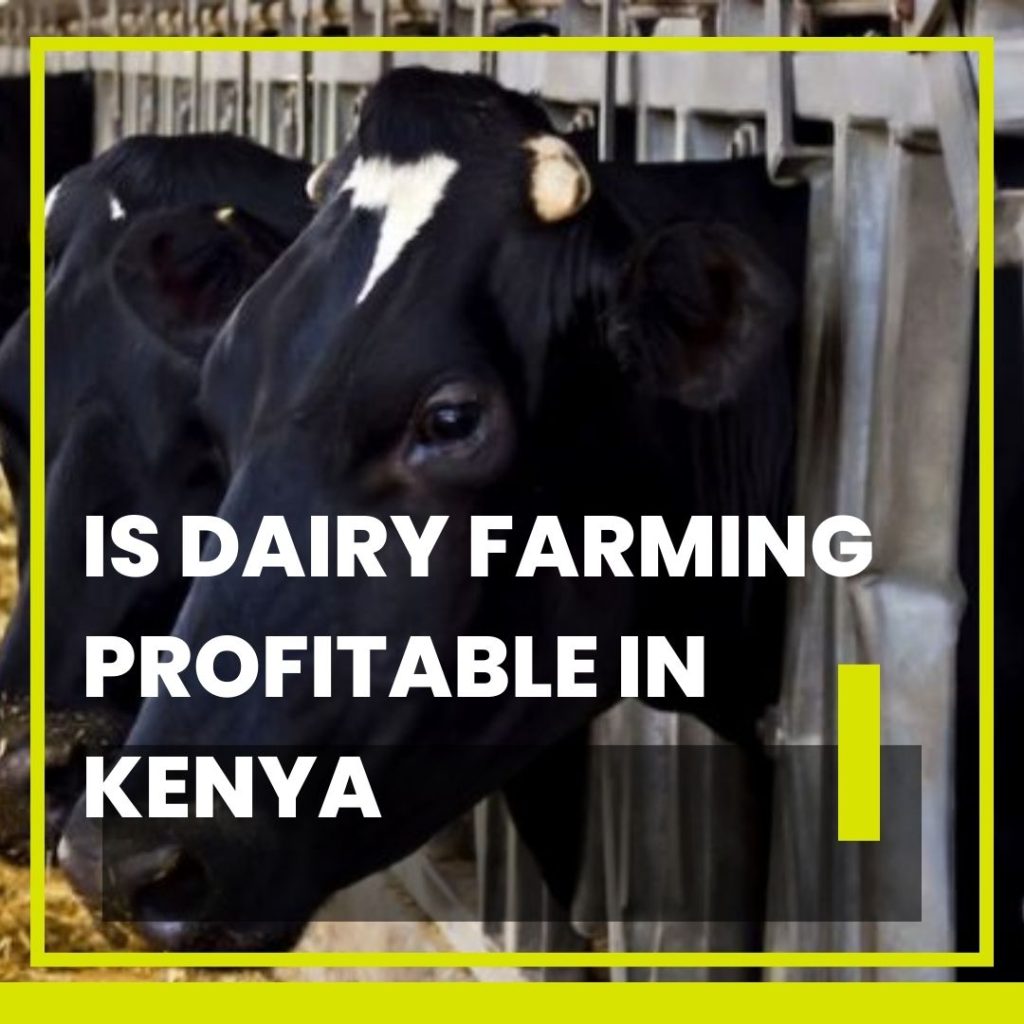Is Dairy Farming Profitable in Kenya?
The dairy industry in Kenya plays a significant role in the country’s economy. With its rich agricultural landscape and favourable climate, Kenya has become a prominent player in the global dairy market. This article will explore the profitability of dairy farming in Kenya, examining the factors that influence its success and the challenges faced by farmers in this sector.
Understanding the Dairy Farming Landscape in Kenya
Kenya has a long history of dairy farming, which has evolved over time. Today, the country’s dairy industry is thriving, contributing significantly to its agricultural sector. The demand for dairy products, such as milk and cheese, continues to grow, creating opportunities for farmers to maximize their profitability. Major players in the Kenyan dairy sector include large-scale commercial farms as well as small-scale farmers who cater to local markets.
Factors Influencing Profitability in Dairy Farming
Several factors can impact the profitability of dairy farming in Kenya. The country’s diverse climate and geographical considerations play a crucial role in determining the success of dairy farms. The availability and quality of grazing land are also significant factors, as they directly impact the health and productivity of the dairy cattle. Additionally, access to water and irrigation systems is vital for maintaining the well-being of the animals and ensuring consistent milk production. The impact of technology and modern farming practices cannot be overlooked, as they have the potential to revolutionize the industry. Moreover, selecting the proper breed is essential for optimal milk yield and overall profitability.
The Economics of Dairy Farming
Starting a dairy farm in Kenya requires a significant capital investment. Farmers need to acquire land, purchase high-quality dairy cattle, and invest in infrastructure like barns and milking parlors. Operating costs include expenses related to animal feed, veterinary care, labor, and equipment maintenance. To generate revenue, dairy farmers rely on milk sales, which can vary depending on market demand and milk prices. While dairy farming can be profitable, it is not without its challenges, such as fluctuating milk prices and market volatility. Evaluating returns on investment and determining profitability is crucial for dairy farmers.
Advancements in Dairy Farming Techniques
Modern dairy farming practices have revolutionized the industry, providing farmers with innovative ways to increase productivity and profitability. By adopting efficient feeding and milking practices, farmers can optimize milk output while minimizing costs. Automation has also played a significant role in streamlining dairy operations, reducing labor requirements, and enhancing efficiency. Exploring value addition opportunities in dairy processing, such as cheese production or yogurt manufacturing, can further contribute to the profitability of dairy farms.
Dairy training in Kenya plays a pivotal role in enhancing profitability within the dairy farming sector. With its diverse climatic conditions and evolving agricultural practices, Kenya’s dairy industry can be complex to navigate. Specialized training equips farmers with essential knowledge about modern dairy practices, herd management, animal health, and efficient milk production. This training empowers farmers to implement scientifically proven techniques, optimize resource utilization, and mitigate challenges. By staying updated with the latest advancements, farmers can make informed decisions, boost milk yields, improve herd health, and streamline operations. Ultimately, this knowledge translates into increased profitability, making dairy training a crucial contributor to the success of dairy farming in Kenya.
Government Support and Policies for Dairy Farmers
The Kenyan government recognizes the importance of the dairy industry and has implemented initiatives to promote its growth. Subsidies, grants, and loans are available to support farmers in establishing and expanding their dairy farms. Collaborative efforts between the government and dairy industry stakeholders seek to address challenges, improve access to markets, and create favorable conditions for dairy farming profitability.
Case Studies of Successful Dairy Farmers in Kenya
Examining the experiences of successful dairy farmers in Kenya provides valuable insights and inspiration for others in the industry. These case studies highlight the best practices and strategies implemented by top-performing farms. By learning from these success stories, other dairy farmers can gain knowledge on effective management techniques, breed selection, and marketing strategies, which can contribute to their own profitability.
Challenges and Obstacles in Dairy Farming
Certain challenges persist in the dairy farming sector in Kenya. Fluctuating milk prices and market volatility can impact profitability and income stability for dairy farmers. Quality assurance and milk standards also present challenges, and farmers must meet the necessary regulations to maintain consumer confidence. Overcoming these obstacles requires proactive measures and the implementation of strategies that ensure steady profitability.
Environmental Impact and Sustainability of Dairy Farming
Assessing the environmental footprint of dairy farming in Kenya is vital for the industry’s long-term sustainability. Farmers must adopt sustainable practices that reduce their carbon footprint, conserve water resources, and manage waste effectively. These sustainable practices not only benefit the environment but also contribute to the profitability of dairy farms, as consumers increasingly value products that are produced in an environmentally responsible manner. Adhering to waste management and environmental regulations is crucial for maintaining profitability while minimizing negative environmental impacts.
Supporting Dairy Farmers through Cooperatives and Associations
Dairy cooperatives play a vital role in improving the profitability of dairy farming in Kenya. By joining forces, farmers can collectively negotiate better prices for their milk and access larger markets. Collective bargaining and marketing through cooperatives have proven to be beneficial for small-scale dairy farmers, enabling them to leverage their combined resources and strengthen their market presence. Collaboration within the dairy farming community enhances knowledge sharing and the adoption of best practices, ultimately contributing to the profitability of individual farmers.
Government Regulations and Compliance in Dairy Farming
The dairy farming sector in Kenya operates within a legal framework that ensures health, safety, and hygiene standards are met. Compliance with these regulations is essential for guaranteeing the profitability of dairy farming operations. Regulatory bodies play a crucial role in monitoring compliance, enforcing standards, and maintaining consumer confidence in dairy products. Through adherence to regulations, the dairy industry can sustain its profitability and continue to provide high-quality products to consumers.
Technological Innovations and Future Prospects for Dairy Farming
The future of dairy farming in Kenya holds exciting prospects with the advancement of technology. Genetic engineering and breeding techniques offer the potential for higher milk yields and better-quality dairy cattle. Precision farming, enabled by modern technology, can maximize productivity while minimizing resource wastage. Furthermore, exploring alternative dairy products and expanding market opportunities can open new avenues for profitability in the industry.
Summary and Conclusion
This article has provided a comprehensive exploration of the profitability of dairy farming in Kenya. While there are challenges and obstacles, the industry holds immense potential for farmers willing to invest in modern practices and technologies. Continued government support, collaborative efforts, and adherence to regulations are vital for ensuring the long-term profitability and sustainability of dairy farming in Kenya.
Frequently Asked Questions (FAQs)
A. What are the biggest challenges faced by dairy farmers in Kenya?
- Fluctuating milk prices and market volatility
- Ensuring compliance with quality assurance and milk standards
- Addressing climate change impacts
B. Is dairy farming more profitable than other agricultural ventures in Kenya?
- Dairy farming can be profitable, but it requires significant investments and effective management practices. Profitability may vary depending on market conditions and operational efficiency.
C. How can small-scale dairy farmers improve their profitability?
- Joining dairy cooperatives to negotiate better prices and access larger markets
- Adopting efficient feeding and milking practices to optimize milk output
- Exploring value addition opportunities through dairy processing
E. How is climate change affecting dairy farming profitability in Kenya?
- Changing weather patterns may impact grazing land availability and cattle health
- Farmers need to adapt to new climate realities and implement sustainable practices to maintain profitability.

